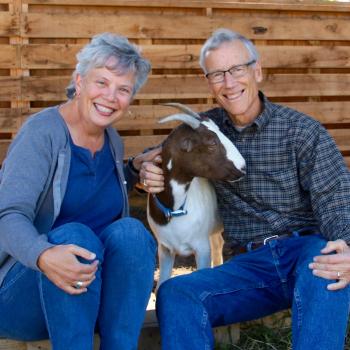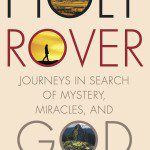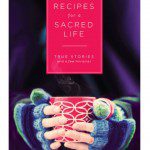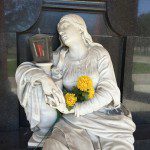Amid the deluge of news coverage after Steve Jobs’ death, most interesting to me were the clips played from a commencement speech he delivered at Stanford University in 2005. Jobs describes how the experience of facing death changed him. He talks eloquently about following one’s heart and not living someone else’s life. I heard one commentator describe the speech as the “Gettysburg Address of commencement speakers,” and I don’t think that’s much of an overstatement (to listen to the full speech go here).
 I thought of that speech while reading a lovely new book: Life Gets Better: The Unexpected Pleasures of Growing Older
I thought of that speech while reading a lovely new book: Life Gets Better: The Unexpected Pleasures of Growing Older. Author Wendy Lustbader is a social worker who has spent her career working with older people, and she writes beautifully about the wisdom and perspective that can come with age. In chapters such as “Generosity,” “Gratitude,” and “Resilience” she tells stories and reflects on lessons she’s learned. Like Jobs, she believes that life becomes significantly more meaningful once we face the fact that it will not go on forever.
Lustbader published an excerpt from her book on the Huffington Post. She begins the piece by quoting a Sufi proverb: “Two veils separate us from the divine — health and security.” Lustbader goes on to say this:
I once asked a particularly warm-hearted oncologist how he could stand to have so many of his patients die, yet remain so open in his relationships. He revealed that every year he goes into remote areas of Alaska where grizzly bears preside, armed with only a camera. “If a hungry bear finds me out there, the simple fact is that I am lower on the food chain. Each time, I have to get through being afraid. Something comes over me — a sort of recognition — and then I’m good for another year.”
There is no difference between this doctor’s exposure to death in the woods and that which threatens his patients. He does all he can for them, but it is in the nature of things that a bear or a tumor will take a life from time to time. Each of us at some point must enter that vulnerability. If we accede to it, rather than recoil, the experience of helplessness will deliver us directly to the sacred.
Fear for our lives prompts us to see the world anew. A heart muscle showing signs of fatigue, or a tumor refusing to stay contained, brings us face-to-face with all that is transcendent. Power, money, individual aspiration — these recede as our relationships shine with primacy. Many hospice patients I have assisted over the years have taken on a look of such clarity that being in their presence has jolted me into an expanded consciousness.
The challenge is to let what we glimpse at such times mark the rest of our lives. We have to remember what mattered to us then and what did not, rather than to slip right back into unknowing as soon as we are able to resume our regular doings. I always tell people who are afraid to visit a dying friend or relative, “Go sit there and let the experience be what it is. You will live so much better afterwards.”
I’ve had the privilege of being around several dying people in their last days—perhaps you have too. But then, we all are in the process of dying, aren’t we? It’s good to have people like Steve Jobs and Wendy Lustbader remind us of that.











